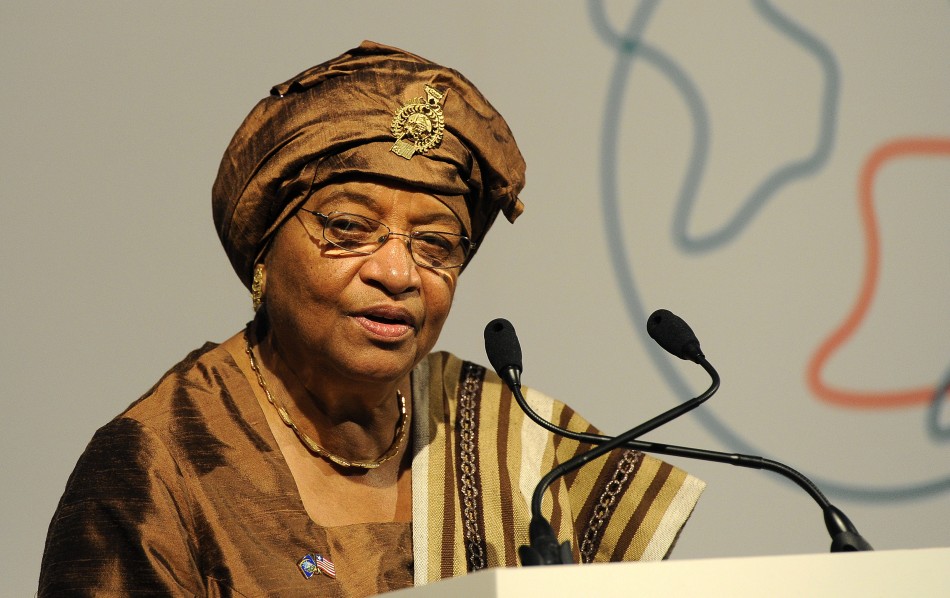- Sirleaf, ECOWAS Condemns Violence, Mutiny in Ivory Coast
The President of Liberia and Chairperson of the Authority of Heads of State and Government of ECOWAS, Mrs. Ellen Johnson Sirleaf, has condemned the uneasy calm in Ivory Coast as a result of the threat of mutinous soldiers in their demand for compensation allegedly promised them by their government.
Sirleaf in a statement issued on behalf of the ECOWAS authority and obtained by journalists yesterday, called on the mutineers to ensure they permanently return to the barracks.
Even though government has reached agreement with the rebel soldiers, she urged them not to repeat the acts of “shootings and threat to civilian lives, remove road blocks which obstruct the free movement of people and conduct of normal commercial activities in cities and towns”.
She renewed the firm commitment of all ECOWAS members to the maintenance of peace and stability in the Community, which are indispensable for achievement of the aspirations of the citizens for development.
The ECOWAS chair further urged mutineers to refill their obligation to protect the citizens of Cote d’Ivoire and to refrain from any actions which could result in further deaths and injuries.
Sirleaf also called on them to “maintain the peace and tranquillity, which Ivorians and citizens of other countries of the West Africa sub-region have enjoyed for many years and continue to work concertedly to preserve”.
In a related development, the Liberian Delegation to the ECOWAS Parliament has outlined series of progress and achievements the country continues to make under the leadership of Sirleaf.
The Liberian legislators, in its 2017 Liberia’s Country Report to the ECOWAS Parliament, highlighted progress made in the country since it presented its last Country Report about seven months ago during the regional body’s Second Ordinary Session in 2016.
This was contained in a release yesterday by the Minister Counselor for Press & Public Affairs of Liberian Embassy, Abuja, Mr. Nat Bayjay.
Bayjay stated that the Montserrado County Representative, Mr. Edwin Melvin Snowe, Jr. read the report on behalf of the Liberian Delegation on Tuesday, May 16, 2017 during the ongoing First Ordinary Session of the ECOWAS Parliament in Abuja.
He said the Liberia’s other members to the ECOWAS Parliament include Senators George Manneh Weah and Prince Yormie Johnson of Montserrado and Nimba Counties respectively. The others are Representatives Jefferson Karmoh of Sinoe County, who is also the Parliament’s Third Deputy Speaker, and Haja Fatta Siryon of Bomi County.
He said the report, among others, discussed progress in the political and security situation, status of the implementation of the Community Texts, ratification of ECOWAS’ Community Protocols and Conventions, implementation of the community programs and the refugee situation in the region.
The Embassy Spokesman said report also touched on the pending electoral process in Liberia, the status of implementation of the ECOWAS Macro-Economic Program as it relates to level of achievement of convergence criteria, the status of implementation of the ECOWAS Infrastructural and Transportation Policies and Programs and sensitization activities carried out by parliamentarians.
On the political situation in the country, he said, the report says Liberia continues to enjoy a peaceful democracy ahead of the October general elections: “There have not been any major political conflicts in terms of violence or crisis.”
The report then outlined progress made already by the National Elections Commission (NEC), including the Commission’s recently released time-table for the electoral progress.
On the Code of Conduct, the report added, “On March 3, 2017, after two years on the dockets of the Supreme Court of Liberia, the [Supreme Court] bench on March 3, 2017, in a 3-2 vote ruled that the Code was constitutional and does not in any way violate any provision of the Constitution”.
On security, the Liberian delegation observes that the country continues to support African solidarity in the area of security as the recipe to regional peace, democracy and good governance.
“Currently, Liberia is contributing troops to ECOWAS’ initiative towards the defense of democracy, peace and security in Mali. Unfortunately, Sergeant Ansu Sheriff of the Liberian Contingent lost his life when their base was attacked wounding other members of his Unit. Liberia also played pivotal role in the peaceful resolution of the Gambian political stalemate that ended peacefully without bloodshed.”
The report said that as head of the Authority of Heads of State and Government of ECOWAS, Liberia is currently leading a peaceful settlement to the ongoing political situation in Guinea Bissau”.
On the regional front, the report noted Liberia’s considerable progress in achieving key deliverables under President Sirleaf as Chairperson of the Authority of Heads of State and Government of ECOWAS.
“Liberia has demonstrated remarkable leadership in addressing some of the critical political, social and economic crises confronting the region. It has supported peace initiatives and political governance in the region. Similarly, it has become a key player in driving the region’s health reform process as well as advancing critical agenda to address and enhance its financial and economic viability.”
The Senegalese and Guinean delegations also presented their respective Country Reports during today’s session of the Fourth Legislature of the ECOWAS Parliament.
The ongoing First Ordinary Session, which opened on the 10th of this month, closes on the 25th of the same month.
Comprising of 115 members from all of the 15 countries of ECOWAS, the Parliament sits in session three times a year with two ordinary sessions in May and September. There may however be an extraordinary session at any time in the course of the year to discuss any urgent and specific agenda.


 Naira3 weeks ago
Naira3 weeks ago
 News4 weeks ago
News4 weeks ago
 Naira4 weeks ago
Naira4 weeks ago
 Naira3 weeks ago
Naira3 weeks ago
 Jobs3 weeks ago
Jobs3 weeks ago
 Travel3 weeks ago
Travel3 weeks ago
 Naira3 weeks ago
Naira3 weeks ago
 Investment4 weeks ago
Investment4 weeks ago





























